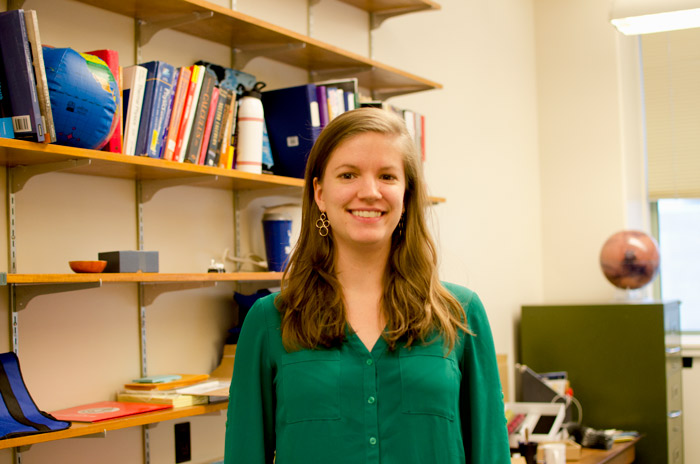Scientists have been warning for years that it may actually be too late to stop climate change despite concerted efforts by the global community. But the world may not be doomed after all. According to a new paper co-authored by McGill Professor Natalya Gomez from the Department of Earth and Planetary Sciences, humanity might just have a bit more time than previously predicted.
The paper, published in Nature Communications, outlined the effects of factors that had been ignored by earlier computer models used to evaluate global warming. By including these new aspects, the scientists determined that the Antarctic Ice Sheet (AIS) will melt at half the rate previously predicted. This means there will be more time to plan for and prevent sea level rise and coastal flooding.
Among the new phenomena examined by Gomez are the fluid properties of the earth’s mantle beneath Antarctica. These include viscosity, elasticity, and even the gravity produced by the mass of the ice itself. Previously, these had not been included because scientists believed their effect would not be significant compared to other more obvious factors, such as sunlight, ocean currents, and greenhouse gas retention.
Gravity makes the water level higher near the icecaps, due to the enormous mass of ice pulling on the sea in a similar manner to the tidal effect of the moon. As the ice sheet melts into the ocean, it loses mass, and the water level drops. Ice, however, melts more slowly when it is not in contact with water. As the AIS melts and loses its gravitational pull on the surrounding water, the surface area of contact between the ice and water decreases, and consequently, the ice melting slows down.
The other factor taken into account for the first time is the fact that Earth will ‘bounce back’ as weight is taken off of it, known as Earth’s rebound. The Earth beneath the ice sheet possesses a degree of elasticity like any other substance. As the sheet melts, and the enormous weight of the ice is taken off of it, the ground underneath the ice sheet will expand upward, and limit the contact of the remaining ice with the surrounding seawater.
The rise in sea level from melting ice mostly comes from a small handful of ‘outlet’ glaciers fed by snowfall and driven by gravity into the sea. Chief among these, as identified by Gomez in a separate article in Nature News and Views, is the Thwaites Glacier, a small but significant site of ice loss in a sheet of ice known as the Amundsen Sea Embayment (ASE). This relatively unpredictable process is cited by the paper as a major cause of the uncertainty related to predicting levels of destruction.
The effects of icemelt do not end with flooding. The ecosystem is complex and every unbalance has a domino chain of consequences, explained McGill Department of Atmospheric and Oceanic Sciences Professor Bruno Tremblay.
“It stratifies the ocean,” Tremblay said. “It isolates the surface water from the warmer water beneath. When you melt glacier ice, you decrease the salinity of the surface water. And freshwater is much lighter than salty water. It’s like a lens of oil sitting on top of water. It’s two different densities, and it prevents vertical exchange between the two layers.”
This has additional ecological implications. Ocean stratification prevents the vertical exchange of nutrients as well as salt. When nutrients are trapped below the photic zone where sunlight reaches, phytoplankton and other basic organisms starve, which can have severe continuing repercussions up the food chain.
Estimates over the next few centuries warn of coastal devastation and runaway ecological upheaval—both from heat expansion and the shrinking of polar ice caps. Even with this new information, it’s only a little extra time that should be used wisely to prevent further damage.
“Antarctic ice loss would add meltwater to the oceans and contribute to future sea-level rise, posing a threat to coastal communities and environments around the world,” Gomez said.








